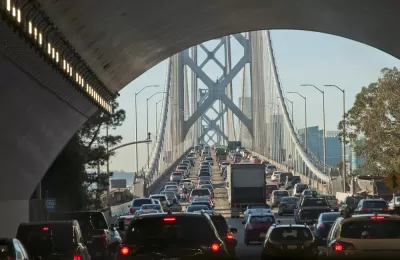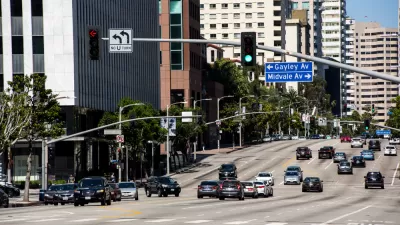Increasing car ownership and shifting demographics means planners need to rethink the car-centric equation, according to this article.

Daniel C. Vock has some good news and some bad news about car ownership among low-income Americans.
"The good news is that more low-income Americans report they have access to vehicles than they did a decade ago, before the Great Recession," according to Vock. "The bad – or at least, unsettling – news is that even a subtle shift in car usage could have big impacts on transit ridership and other transportation policies, and public officials are still trying to determine how to respond."
The contemporary connection between increased car ownership and reduced transit ridership was first elucidated by researchers from the University of California, Los Angeles in a study focusing on the Los Angeles region. Vock follows the reasoning of that study to a broader conclusion about the United States reverting to the pre-Recession norm in terms of car ownership and usage.
"Urban planners who want to push for walkable neighborhoods and transit-oriented development can still make a compelling case for certain areas, particularly urban centers," writes Vock.
The article includes more details about the implications of increased car ownership, for both urban and suburban environments, as well as in other sectors of the economy, like auto loans.
FULL STORY: More Poorer Residents Are Driving Cars, Presenting New Issues for Transit Agencies

Maui's Vacation Rental Debate Turns Ugly
Verbal attacks, misinformation campaigns and fistfights plague a high-stakes debate to convert thousands of vacation rentals into long-term housing.

Planetizen Federal Action Tracker
A weekly monitor of how Trump’s orders and actions are impacting planners and planning in America.

In Urban Planning, AI Prompting Could be the New Design Thinking
Creativity has long been key to great urban design. What if we see AI as our new creative partner?

Pedestrian Deaths Drop, Remain Twice as High as in 2009
Fatalities declined by 4 percent in 2024, but the U.S. is still nowhere close to ‘Vision Zero.’

King County Supportive Housing Program Offers Hope for Unhoused Residents
The county is taking a ‘Housing First’ approach that prioritizes getting people into housing, then offering wraparound supportive services.

Researchers Use AI to Get Clearer Picture of US Housing
Analysts are using artificial intelligence to supercharge their research by allowing them to comb through data faster. Though these AI tools can be error prone, they save time and housing researchers are optimistic about the future.
Urban Design for Planners 1: Software Tools
This six-course series explores essential urban design concepts using open source software and equips planners with the tools they need to participate fully in the urban design process.
Planning for Universal Design
Learn the tools for implementing Universal Design in planning regulations.
planning NEXT
Appalachian Highlands Housing Partners
Mpact (founded as Rail~Volution)
City of Camden Redevelopment Agency
City of Astoria
City of Portland
City of Laramie





























